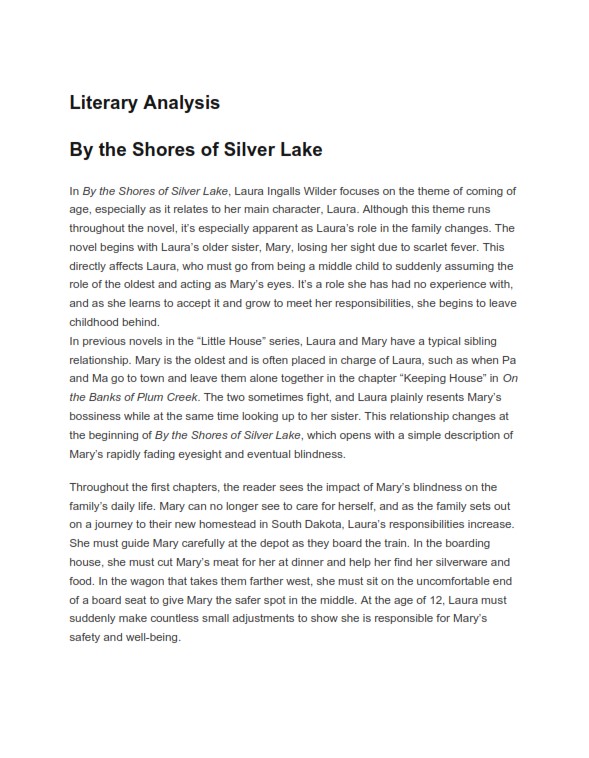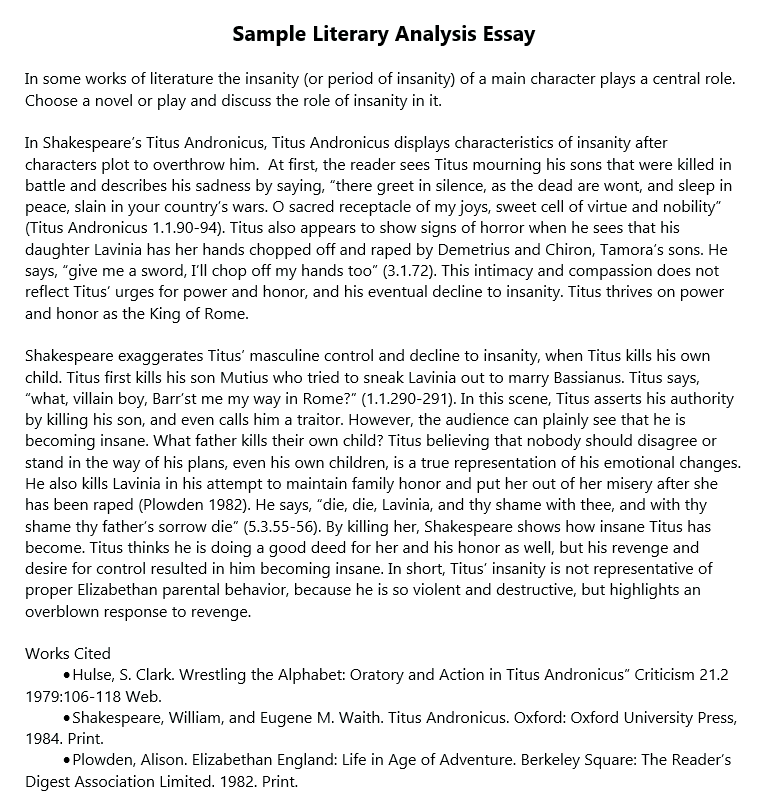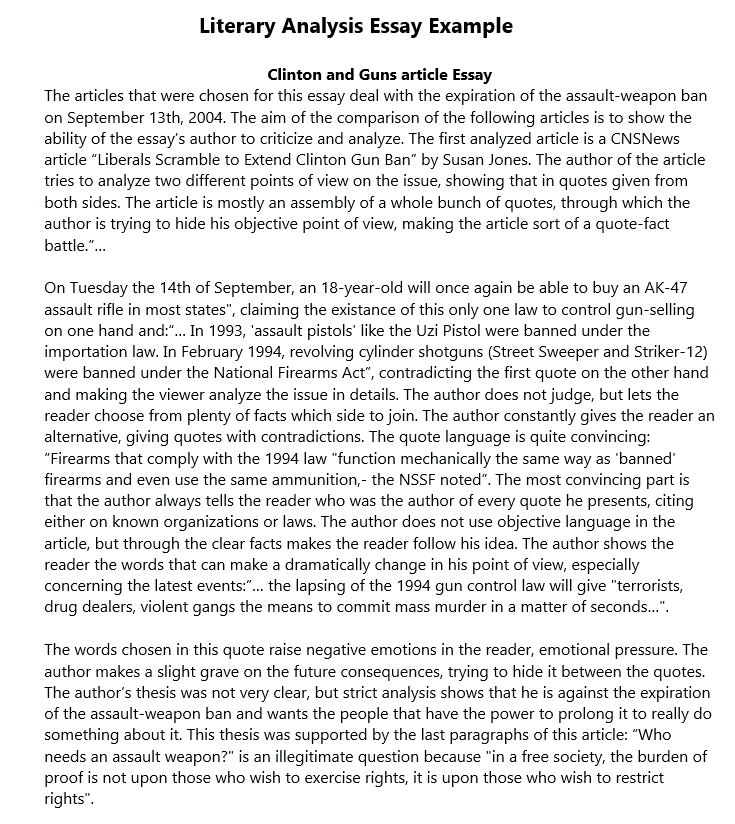
How to Write a Literary Analysis Essay Introduction
Naturally, your literary analysis needs a strong, convincing conclusion. This final paragraph will make the essay complete and well-rounded. It will give the reader an impression that you made a clear point that they are ready to agree or disagree with. How do you write such a conclusion? Don’t introduce new points of discussion in the conclusion Take the interpretations that you have written above and try to add a few words to their context, turning them into fine statements that can make sense to anyone who is reading your work. If possible, make these into paragraphs Prove your criticisms Once you are through with that, you need evidence to support your claims 1. Outlining: You can write an outline and plan what topics you want to cover to prove a specific point. This is more easily done if you have taken lots of notes in your book as you read the piece. You might Write down topic sentences for each paragraph and list possible examples. 2

Literary Theories
My main idea is to compare and contrast the following three literary elements: settings, symbols, and theme, of the two shorts stories, read in class, ¨Hills Like White Elephants¨ and ¨The Nightingale and The Rose¨. ¨Hills Like White Elephants¨ is a short story written by Hills Like White Elephants Literary Criticism Oscar Wilde Take the interpretations that you have written above and try to add a few words to their context, turning them into fine statements that can make sense to anyone who is reading your work. If possible, make these into paragraphs Prove your criticisms Once you are through with that, you need evidence to support your claims 1. Outlining: You can write an outline and plan what topics you want to cover to prove a specific point. This is more easily done if you have taken lots of notes in your book as you read the piece. You might Write down topic sentences for each paragraph and list possible examples. 2

Essay Related
Take the interpretations that you have written above and try to add a few words to their context, turning them into fine statements that can make sense to anyone who is reading your work. If possible, make these into paragraphs Prove your criticisms Once you are through with that, you need evidence to support your claims Naturally, your literary analysis needs a strong, convincing conclusion. This final paragraph will make the essay complete and well-rounded. It will give the reader an impression that you made a clear point that they are ready to agree or disagree with. How do you write such a conclusion? Don’t introduce new points of discussion in the conclusion · The most important aspect of literary criticism, which students need to keep in mind, is that it is a process of “breaking down”. You need to analyze or dissect a particular piece of work into its constituent parts and then you have to make sense of the individual parts. Place your orderEstimated Reading Time: 4 mins

Step 2 :: THESIS
· Step THESIS. The thesis is a road map for the paper—it tells the reader what to expect. A good thesis is specific, limited in scope, and offers a perspective or interpretation on a subject. Focus on specific attribute (s) of the text (s). Make a specific, arguable point (thesis) about these attributes. Defend this point with reasons and 1. Outlining: You can write an outline and plan what topics you want to cover to prove a specific point. This is more easily done if you have taken lots of notes in your book as you read the piece. You might Write down topic sentences for each paragraph and list possible examples. 2 Naturally, your literary analysis needs a strong, convincing conclusion. This final paragraph will make the essay complete and well-rounded. It will give the reader an impression that you made a clear point that they are ready to agree or disagree with. How do you write such a conclusion? Don’t introduce new points of discussion in the conclusion

Table of contents
Naturally, your literary analysis needs a strong, convincing conclusion. This final paragraph will make the essay complete and well-rounded. It will give the reader an impression that you made a clear point that they are ready to agree or disagree with. How do you write such a conclusion? Don’t introduce new points of discussion in the conclusion · Step THESIS. The thesis is a road map for the paper—it tells the reader what to expect. A good thesis is specific, limited in scope, and offers a perspective or interpretation on a subject. Focus on specific attribute (s) of the text (s). Make a specific, arguable point (thesis) about these attributes. Defend this point with reasons and · The most important aspect of literary criticism, which students need to keep in mind, is that it is a process of “breaking down”. You need to analyze or dissect a particular piece of work into its constituent parts and then you have to make sense of the individual parts. Place your orderEstimated Reading Time: 4 mins
No comments:
Post a Comment